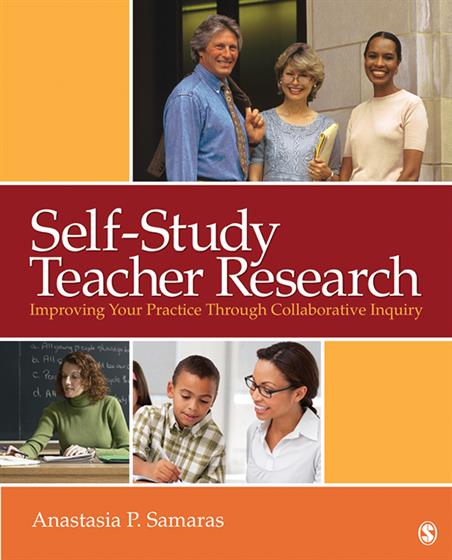Hands-on, Practical Guidance for Educators
From math,
literacy, science, equity, multilingual learners, and SEL, to assessment, school counseling,
and education leadership, our books are research-based and authored by experts
on topics most relevant to what educators are facing today.

Self-Study Teacher Research
The first textbook to offer novice and experienced teachers guidelines for the "how" and "why" of self-study teacher research
Designed to help pre- and in-service teachers plan, implement, and assess a manageable self-study research project, this unique textbook covers the foundation, history, theoretical underpinnings, and methods of self-study research. Author Anastasia Samaras encourages readers to think deeply about both the "how" and the "why" of this essential professional development tool as they pose questions and formulate personal theories to improve professional practice.
Written in a reader-friendly style and filled with interactive activities and examples, the book helps teachers every step of the way as they learn and refine research skills; conduct a literature review; design a research study; work in validation groups; collect and analyze data; interpret findings; develop skills in peer critique and review; and write, present, and publish their studies.
Key Features
- A Self-Study Project Planner assists teachers in understanding both the details and process of conducting self-study research.
- A Critical Friends Portfolio includes innovative critical collaborative inquiries to support the completion of a high quality final research project.
- Advice from the most senior self-study academics working in the U.S. and internationally is included, along with descriptions of the self-study methodology that has been refined over time.
- Examples demonstrate the connections between self-study research, teachers' professional growth, and their students' learning.
- Tables, charts, and visuals help readers see the big picture and stay organized.
- Grade Level: PreK-12
- ISBN: 9781412972079
- Published By: Sage Publications Inc
- Year: 2010
- Page Count: 344
- Publication date: April 22, 2010
Review Copies
Review copies may be requested by individuals planning to purchase 10 or more copies for a team or considering a book for adoption in a higher ed course. Request review copy


